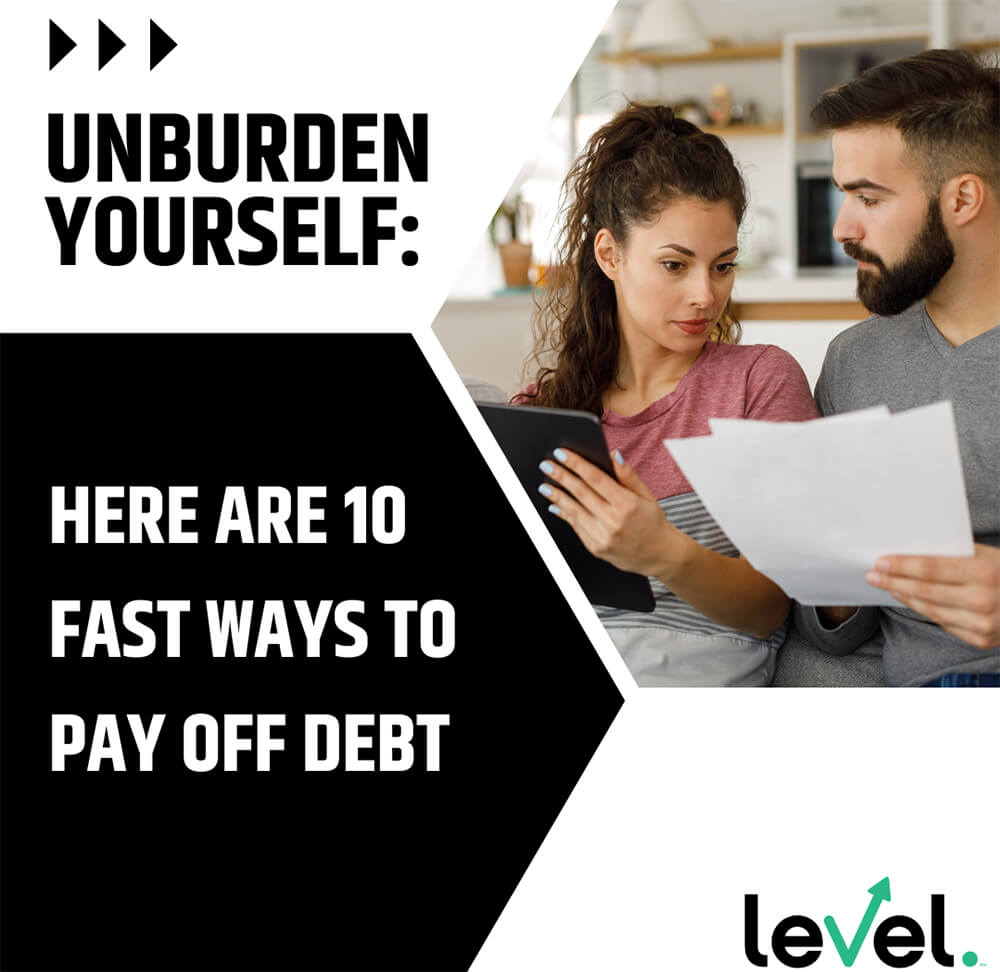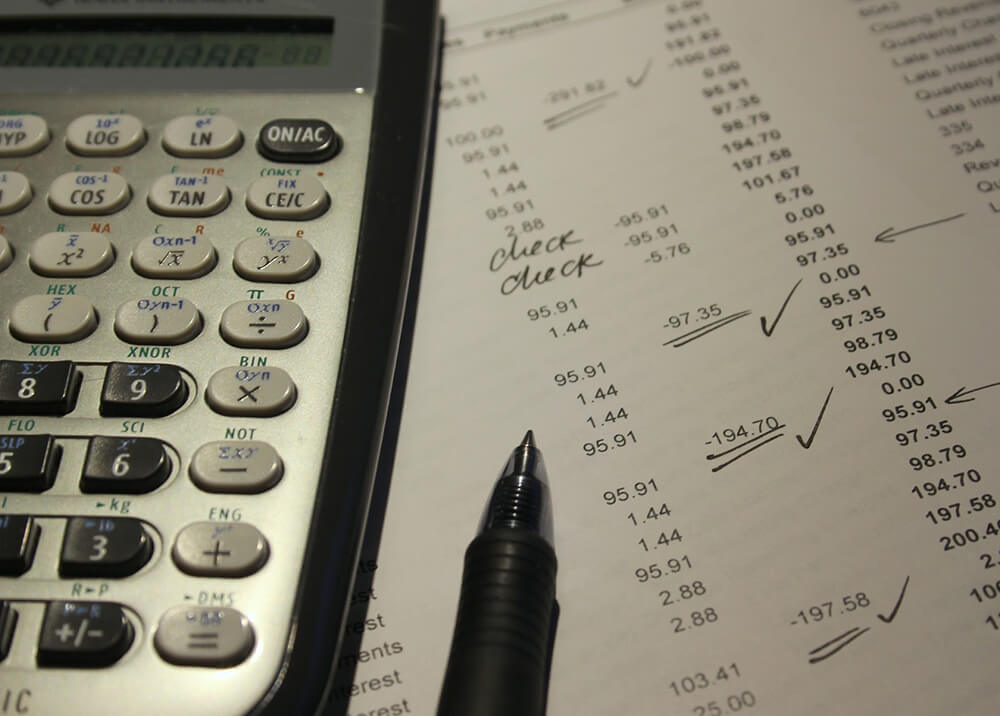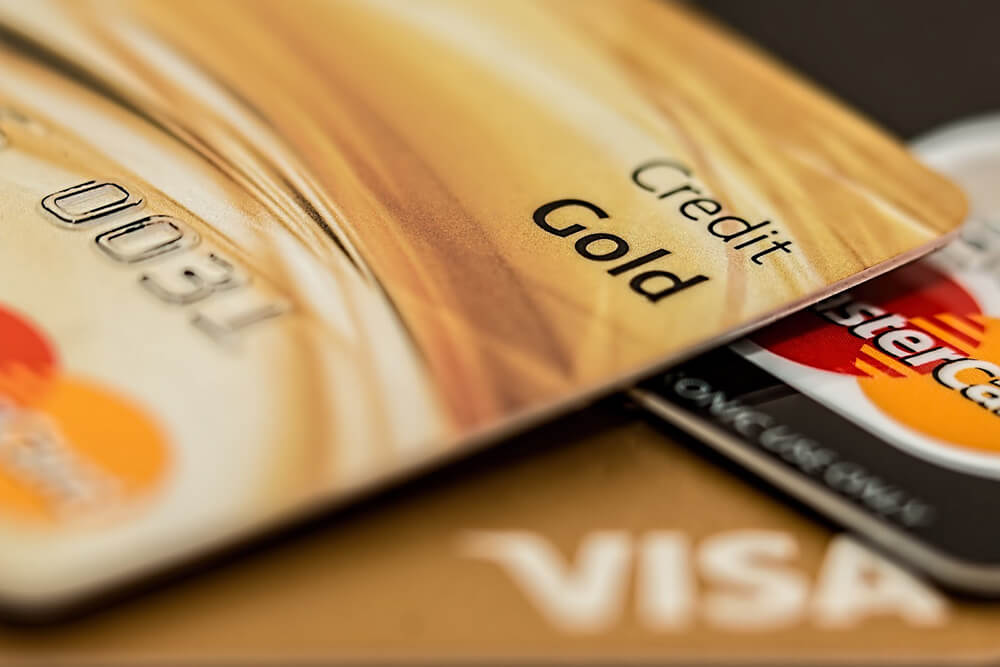
Unburden Yourself: Here Are 10 Fast Ways to Pay Off Debt
There are various reasons you may want to get out of debt fast. You may be making sacrifices and want to spend your whole income. Or you are trying to increase your savings rate to plan for retirement. Sometimes you wish to experience the feeling of being debt-free, lower stress, and smell roses.
Whatever your motivation and your type of debt (credit cards, student loans, personal loans), different strategies can help achieve this goal. This article will focus on ten fast ways to get out of debt and which ones are the most suitable for you.
Creating a Budgeting Goal
Budgeting can give structure and direction to the way you spend money and help you achieve financial goals faster. These goals could be saving, retirement, or paying off debt quickly.
When creating a budget, the first steps are:
- Determining your monthly income (after taxes)
- List your essential fixed expenses (e.g., health insurance premium)
- List your essential variable expenses (e.g., groceries)
- List your non-essential fixed expenses (e.g., Netflix subscription)
- List your non-essential variable expenses (e.g., cinema)
Then allocate a share of your income to
- Essential expenses (e.g. 50%)
- Non-essential expenses (e.g. 30%)
- Debt Repayments and Savings (e.g., 20%)
The percentages we used are the popular 50-30-20 rule. If you want to pay off debt faster, you can allocate an even higher money percentage to debt repayments (e.g., 35%) and a lower percentage to non-essential expenses (e.g., 15%).
When It Makes Sense to Cut Expenses
- You have non-essential fixed expenses to cut.
- You have non-essential variable expenses to cut.
Making Extra Payments
Sometimes, loan providers allow you to make additional monthly payments. This money goes entirely toward your principal. Adopting this method allows you to pay off your debt at a faster rate. It’s an excellent strategy if you have irregular cash flows on top of your primary income. For instance, a freelancer with both regular and occasional clients could use the revenue generated by the latter to make extra monthly payments. You could also make extra payments if you have recently sold an asset (e.g., a car or boat), which provided you some extra money. Or maybe you have just received a bonus from your employer for your excellent work.
When It Makes Sense to Make Extra Payments
- You have an additional cash flow on top of your regular income.
- You have occasional extra cash.
- Your additional or occasional extra money is not necessary to cover necessary expenses.
Paying More than The Minimum
Similar to making extra payments towards your debt, is paying more than the minimum each month. It’s a very effective way to pay off your debt faster if you have seen a significant increase in your regular income. If you have just received a sizeable pay raise or taken a second part-time job, you can use the additional money to pay more each month and become debt-free in a shorter period. You can also use this option when renting an additional house or apartment. If all or part of the money you receive from your tenant is not needed to cover essential expenses, then using it to make higher monthly debt payments is a very effective way to get out of debt faster.
When It Makes Sense to Pay More than the Minimum
- You received a pay raise
- You got a second part-time job
- You have a new, stable secondary income (e.g., rent from a tenant)
Using a Debt Snowball Strategy
So what if you don’t have a lot of room for expense cuts or additional income? In this case, a strategy that could help you get out of debt quicker is the so-called debt snowball method. Basically, you start by paying your smaller loan as fast as you can. Once you have paid it back entirely, you use the income you have freed to repay the second smallest loan. Gradually, you will free more and more income until you are left with just one loan and a much higher available income for its repayment. To pay a higher amount than your minimum payment on your smallest debt and jump-start the “snowball” effect, you can either cut non-essential costs or look for ways to generate some extra income.
When it Makes Sense to Use the Debt Snowball Method
- You have multiple loans or credit cards with different amounts left to repay.
- The total principal you owe is significant.
Use a Debt Avalanche Strategy
The debt avalanche method focuses on paying back the loan with the highest interest rate first and then gradually loans with lower interest rates. This frees up an increasing amount of income you can use to pay back lower-interest loans. Like in the previous case, you will have to cut non-essential costs or find a bit of extra income to pay more than the minimum on your highest-interest loan. As you pay off your first loan, you will continue to make minimum payments on all other debts.
When It Makes Sense to Use the Debt Avalanche Method
- You have multiple loans with various interest rates.
- The total principal you owe is low.
Refinancing Your Debt
Taking out a new personal loan to refinance your current one is a great way to get out of debt faster. This option is convenient when you can obtain a reduced interest rate and lower fees than what you are paying right now. This way, you could pay your loan back sooner by making the same monthly payments you are making now. For example, if you currently owe $25,000 on an existing loan with an interest rate of 14%, it will take 40 months to pay it off with a monthly debt payment of $800. But if you can take out a new loan with an 8% interest rate, it will take you four months less with the same exact monthly payment. Factors that can help you can obtain a lower-interest loan include:
- an improvement in your FICO score
- an improvement in your debt-to-income ratio
- using assets as collateral (secured loans)
- finding a lender that offers very advantageous conditions
When It Makes Sense to Refinancing Your Debt
- You can only cut your expenses or increase your income moderately.
- You can obtain a lower-interest loan.
Learn More: Can Personal Loans Be Refinanced?
Consolidating Your Debts
Debt consolidation allows you to merge various debts (e.g., student loans + car loans + credit cards) into one. If the borrowing cost (interest + fees) of your new loan is lower than the combined cost of your existing debts, you will be able to pay back your debt faster than repaying each loan separately. It also makes debt repayments much less stressful as you would have to make only one monthly payment rather than two, three, or more payments. If your current debt is mostly composed of credit cards, note that other types of loans (e.g., personal loans) usually have a lower interest rate, all other factors being equal.
When It Makes Sense to Consolidate Your Debts
- You have multiple debts.
- You can obtain a new loan at a convenient borrowing cost.
Learn More: Debt Consolidation Loan
Debt Resolution / Debt Settlement
Sometimes your debt mountain is simply too much to climb. Yet, in this scenario, defaulting on your debt is not your only option, as many wrongly assume. Debt resolution is a process through which you hire a debt settlement firm or an attorney to negotiate with your creditors and obtain a reduction in the total sum you owe. While a lender is not obliged to settle, an experienced debt settlement agency can help you reduce up to 45% – 50% of the outstanding debt. One inherent benefit of debt resolution is that you will also get out debt faster, on top of obtaining a significant debt reduction and paying less money overall.
When It Makes Sense to Use Debt Resolution
- When you are in no financial position to repay the total loan amount.
- When repaying the total amount you owe would have a significant negative impact on your life.
Learn More: Debt Settlement Plan
Enrolling in a Debt Management Plan
Debt management differs from debt resolution in that your representatives will negotiate a reduction of the interest and fees on the current sum you owe rather than asking for a reduction of the principal. With a good debt management plan, you can reduce your monthly payments significantly or continue to make the same monthly payments but repay the total amount of money much faster. Debt management programs are non-profit organizations.
When It Makes Sense to Use Debt Management
- You want to lower the sum you owe without affecting your credit score.
- You can afford more than your minimum payments.
Learn More: Debt Management Plan
Using Your Savings
We left this one for last because it’s the most controversial one. Many financial advisors don’t suggest using savings to pay off your debt. That’s because it may deplete your emergency fund, and it may force you to start saving again from scratch. When paying off your debt, the other options we presented are better than resorting to the money in your piggy bank. However, if your emergency fund is already fully funded and if you would only have to use a small share of your savings to pay back a significant part of your debt, using your savings may be a convenient move with little adverse impact on your long-term saving goals.
When It Makes Sense to Use Your Savings
- You already have a sizeable emergency fund.
- You have high savings and a small debt.









Sorry, the comment form is closed at this time.